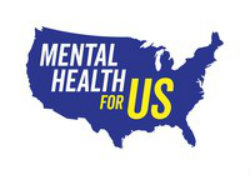Coalitions and Study Groups
We collaborate with a variety of external organizations and coalitions who share our interest in strengthening mental health research, policy and practice. Our partnerships expand our effectiveness on a range of behavioral health issues. Our partners represent a wide range of viewpoints and perspectives that transcend any single discipline.
American Association for the Advancement of Science (AAAS) Science and Human Rights Coalition 
The mission of AAAS is to "advance science, engineering, and innovation throughout the world for the benefit of all people." The AAAS Science and Human Rights Coalition is a network of scientific and engineering membership organizations that recognize a role for scientists and engineers in human rights. The Global Alliance is one of 24 member organizations of the Coalition.
Civil Society Engagement Mechanism for UNC2030 (CSEM)
The CSEM is a global civil society movement with approximately 500 member organizations in more than 75  countries. CSEM is the civil society constituent of the International Health Partnership for UHC2030, which is a global movement to strengthen health systems for University Health Coverage as part of the Sustainable Development Goals. The goal of CSEM is to ensure that Universal Health Coverage policies are inclusive and equitable, and that systematic attention is given to the most marginalized and vulnerable populations so that no one is left behind. countries. CSEM is the civil society constituent of the International Health Partnership for UHC2030, which is a global movement to strengthen health systems for University Health Coverage as part of the Sustainable Development Goals. The goal of CSEM is to ensure that Universal Health Coverage policies are inclusive and equitable, and that systematic attention is given to the most marginalized and vulnerable populations so that no one is left behind.
Cities Thrive Coalition
The Cities Thrive Coalition is a group of mayors and other partners who support a more comprehensive, more responsive, and better-funded integrated behavioral health system for all Americans. Coalition members share information about effective practices, work to shape the national narrative around mental health reform, and encourage the adoption of a public health approach to mental health that promotes promotes wellbeing and the prevention of illness.
Coalition for Whole Health
The Coalition for Whole Health brings together advocates from the mental health and substance use disorder fields to maximize inclusion and coverage of prevention, treatment, rehabilitation, and recovery services in the implementation of health care reform. Founded in June 2010, the coalition is jointly led by Ron Manderscheid of the National Association of County Behavioral Health and Developmental Disability Directors and Paul Samuels of the Legal Action Center.
Forum for Children's Well-Being
The Global Alliance is a sponsor of the Forum for Children's Well-Being, previously called the Forum on Promoting Children's Cognitive, Affective, and Behavioral Health (C-CAB). The Forum is working to build a stronger research and practice base around the development and implementation of programs, practices, and policies promoting children's cognitive, affective, and behavioral (CAB) health. Their work includes a focus on children with disabilities.
The Forum was established in 2013 in response to recommendations from the 2009 National Research Council/Institute of Medicine report Preventing Mental, Emotional, and Behavioral Disorders Among Young People: Progress and Possibilities. This report called on the nation to make the prevention of such disorders and the promotion of mental health of young people a high priority. The Forum engages in dialogue and discussion to connect the prevention, treatment, and implementation sciences with settings where children are seen and cared for, including health care settings, schools, social service and child welfare agencies, and the juvenile justice system, and to create systems that are effective and affordable in addressing children's needs. Past-president Deborah Klein Walker represents the Global Alliance on the Forum.
Their recent two-day workshop, Re-imagining a System of Care to Promote the Well-Being of Children and Families, from September 2020, focused on rebuilding systems to support children and families in the aftermath of COVID-19. The presentations are available for download from their site.
Mental Health Liaison Group (MHLG)
Based in Washington, DC, MHLG is a coalition of national organizations representing consumers, family members, advocates, professionals and providers on mental health issues. MHLG provides its members with an opportunity to exchange information, cooperate in advocacy efforts, coordinate strategies and discuss public policy issues related to mental health. As an active member of the Health Policy Committee, we work with the Committee to develop positions on such issues as health care reform, Medicare, Medicaid, parity, managed care, and Medical Records privacy. We have cosigned letters on topics ranging from equity in Medicare to mental health in schools and mental health reform.
Mental Health for US
Mental Health for US is a landmark nonpartisan initiative designed to elevate mental health and addiction in policy conversations during the upcoming election season. Co-chairs of the Coalition are former U.S. Representative Patrick J. Kennedy (D-R.I and former U.S. Senator Gordon H. Smith (R-OR). The initiative has presented a comprehensive policy platform with three primary foci:
- Prevention -- the goal is to foster healthy environments that support mental health as a part of overall health;
- Access and intervention - timely access to affordable treatment and recovery services for people withe mental illness, including substance use disorders and eating disorders, should be provided;
- Recovery - recovery from mental health and substance use disorders is not a one-size-fits-all endeavor. A wide variety of recovery services, treatments, and supports should be available to all who need them.
Movement for Global Health (MGMH)
At the recommendation of our Global Mental Health Task Force, we joined the Movement for Global Mental Health (MGMH), a network of individuals and organizations that aim to improve services for people living with mental health problems and psychosocial disabilities worldwide. MGMH is especially focused on low- and middle-income countries where effective services are often scarce. The Movement is guided by two fundamental principles: scientific evidence and human rights.
National Prevention Science Coalition for Improving Lives (NPSC)
In 2013, we joined the Prevention Coalition, which subsequently became the National Prevention Science Coalition for Improving Lives (NPSC). The coalition seeks to apply scientific findings toward wide-scale implementation of effective prevention practices and policies. In doing so, NPSC addresses several areas of concern, such as mental and behavioral health, education, juvenile and criminal justice, environmental influences, and physical health. Our work with NPSC has included participating in Congressional Briefings, providing prevention research on a variety of topics to congressional offices, and collaborating with other researchers and practitioners to increase knowledge about topics such as human trafficking, child welfare, and juvenile justice. Learn more about our partnership with NPSC by reading an interview with our Executive Officer.
|


 countries. CSEM is the civil society constituent of the International Health Partnership for UHC2030, which is a global movement to strengthen health systems for University Health Coverage as part of the Sustainable Development Goals. The goal of CSEM is to ensure that Universal Health Coverage policies are inclusive and equitable, and that systematic attention is given to the most marginalized and vulnerable populations so that no one is left behind.
countries. CSEM is the civil society constituent of the International Health Partnership for UHC2030, which is a global movement to strengthen health systems for University Health Coverage as part of the Sustainable Development Goals. The goal of CSEM is to ensure that Universal Health Coverage policies are inclusive and equitable, and that systematic attention is given to the most marginalized and vulnerable populations so that no one is left behind.



